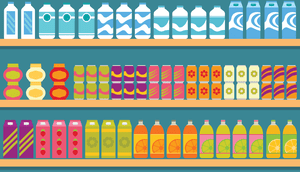Following the death of two customers from allergic reactions to products bought from an international sandwich shop chain, the issue of food labeling has been thrown into the spotlight.
There are more ‘main’ allergens than you might think – 8 headline categories covering many products – ranging from the obvious such as milk, nuts and gluten to the less conspicuous such as lupin and mustard. There are fairly stringent labeling requirements for non-prepacked and prepacked food, especially with food allergies affecting nearly 15 million people in the US, including 1 in 13 children.1 In 2015 3,615 people died from asthma in the US, some of which may be triggered by food allergens.2
Over 45% of all recalls are due to undeclared allergens or mislabeling, so it is a major issue for food and drink manufacturers and food preparation companies. And with life threatening cases becoming more frequently publicized, there is pressure on regulatory authorities to react with power and force on companies which may – or in some cases, may not have an issue.
While the fault may lie with a supplier and a company may not have done anything wrong, they are often held accountable in the public’s eyes which can be detrimental to the brand’s public image and day-to-day business activities.
Product recall insurance is there to help food and drink companies with the costly implications of an error in their allergen controls.
The cost of the recall itself can be but a fraction of the ultimate indemnification under the policy. Rectification costs, loss of sales, business interruption and the costs of publicity and restoring the brand can all be covered – yet this type of insurance is still not commonplace in the market. Food and drink companies buy insurance to protect their staff and premises, but product recall insurance protects the product that ultimately drives their businesses forward.
Allergens aren’t going away. If anything, diagnosis and greater awareness will lead to more reactions from food and drink being linked to manufacturers or food preparation points and their products. It is likely that we will see the regulatory authorities creating tighter rules for food service regarding allergen labeling and staff allergen education – and that’s going to make having adequate product recall cover increasingly important.
Sources:
- www.aafa.org
- www.aafa.org/asthma-facts/



